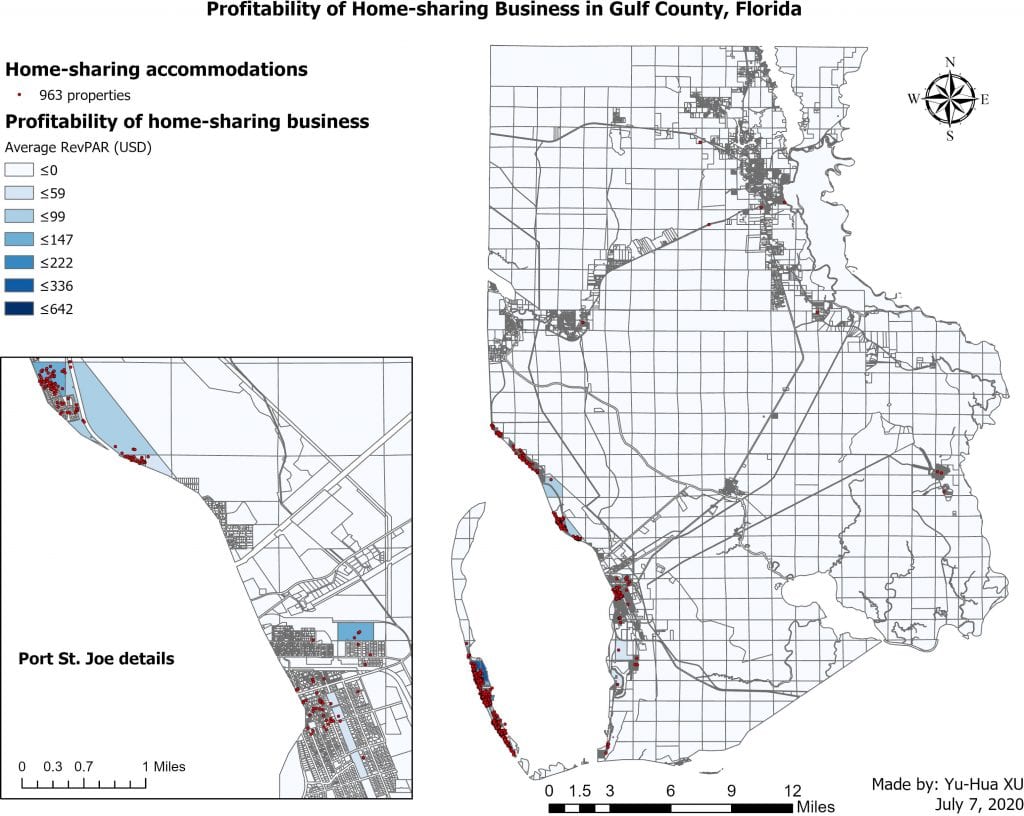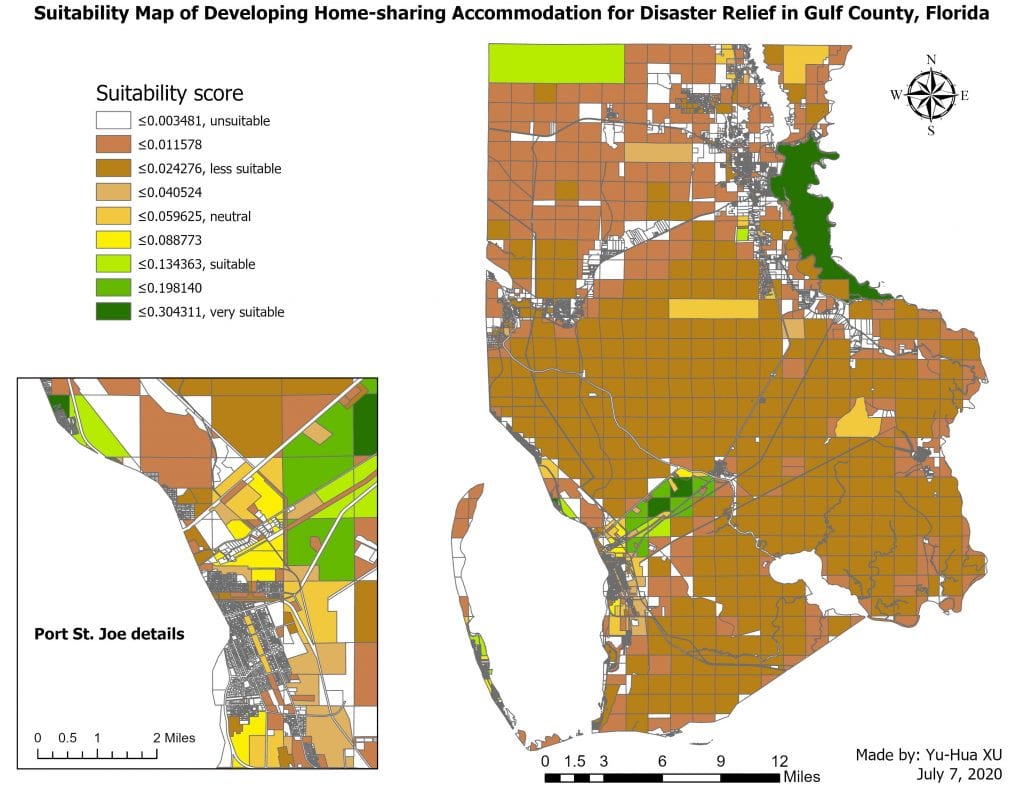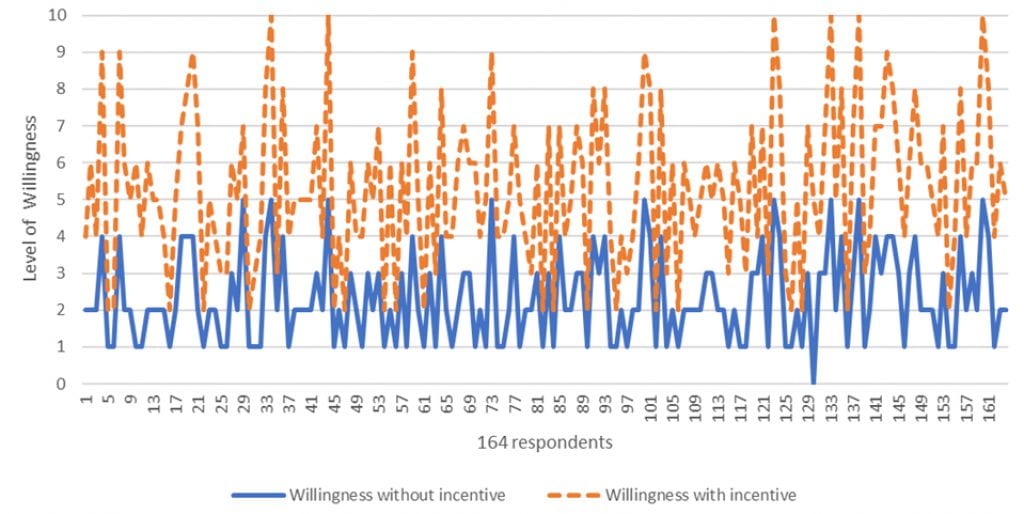Planning for Resilient Community:
Rural Tourism and Home Sharing
in Port St. Joe
Our project explored the disaster relief function of the home-sharing accommodation sector for communities. In March, we conducted surveys among 169 residents in Gulf County, Florida. From the survey we obtained a group of factors that impact residents’ willingness to engage in the practice of disaster relief. First, incentives can largely enhance hosts’ willingness to leverage their properties for crisis recovery. Second, people who have engaged in the sharing economy as guests are more prone to share their resources for disaster relief. Third, the level of vulnerability of a place can positively stimulate residents to share their homes with people in need. Finally, good governance and a financially beneficial shared market presents an encouraging environment for people to share their resources during crises. Based on the results from the survey, we adopted a suitability model to identify the most suitable
locations in Gulf County for home-sharing during disaster relief. With an important assumption, that a suitable place should be a place where homeowners are willing to share their properties, a suitability map was created to assess the level of suitability of all parcels in the county. The level of attractiveness of the parcel to develop a home-sharing business and level of vulnerability were two major aspects that were considered when scoring the locations. We recommend designing a system based on incentives to encourage homeowners to register their vacant properties as temporary shelters ahead of any crisis and ensure that it is able to be open and accessible for hurricane evacuees in times of crisis. It is also suggested to implement screening for architectural safety before registering a home-sharing property for crisis recovery purposes.
TEAM
Lori Pennington-Gray, Professor, Department of Tourism, Hospitality & Event Management; Director, Eric Friedheim Tourism Institute, Penngray@hhp.ufl.edu
Yu-Hua Xu, Doctoral Student, Dept. of Tourism, Hospitality and Event Management, yuhua.xu@ufl.edu
Zi-Ming Li, Research Fellow, Shimberg Center for Housing Studies, liziming@ufl.edu
Anne Ray, Florida Housing Data Clearinghouse (FHDC) Manager, Shimberg Center for Housing Studies, aray@ufl.edu
Community Partners: David Ashbrook, Mayor Pro-Tem, City of Port St. Joe; Cassie Studstill, Realtor, Port St. Joe; Joe Whitmer, Executive Director, Gulf County Chamber of Commerce; Chester Davis, President, North Port St. Joe Project Area Coalition



